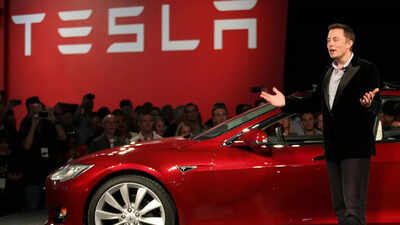China’s battery powerhouse CATL has unveiled a new generation of electric vehicle technology that could threaten Tesla’s global dominance. The company, which already supplies batteries to Tesla’s Shanghai factory, said its upgraded Shenxing battery offers longer range, quicker charging, and better performance in cold weather, a leap that could bring electric vehicles closer to matching petrol cars on both price and practicality, as per the New York Times.
Announced at CATL’s Tech Day in Shanghai, the new Shenxing battery boasts a 320-mile range and can deliver 200 miles of charge in just five minutes. By contrast, Tesla’s Superchargers require 15 minutes to deliver the same mileage. “Once again, we are pushing the boundaries of performance beyond limits,” said CATL’s chief technology officer Gao Huan, who added that the goal is for the Shenxing battery to become the standard in EVs.
The company also introduced a new sodium-ion battery, branded Naxtra, which CATL says is a safer and more affordable alternative to lithium-based batteries. While these innovations are still a couple of years away from being widely available in production vehicles, CATL’s announcement follows closely on the heels of a similar tech breakthrough by rival BYD, underlining the fierce innovation race within China’s EV industry.
CATL, short for Contemporary Amperex Technology Company Ltd., currently produces around a third of the world’s EV batteries and works with 16 of the top global carmakers. BYD, its main Chinese competitor, narrowly edged out Tesla in battery-powered EV production in 2024. It sold 1,777,965 units compared to Tesla’s 1,773,443, aided by its dominance in plug-in hybrid sales and a rapid expansion of its ultra-fast charging infrastructure across China.
Other major Chinese automakers like Great Wall, Geely, and Chery are also aggressively pushing into international markets, banking on innovation and affordability to win over buyers. Geely owns stakes in Volvo, Lotus, and Aston Martin, while Chery has sold more than 15 million vehicles overseas. These moves come as China’s domestic market becomes saturated and increasingly competitive.














